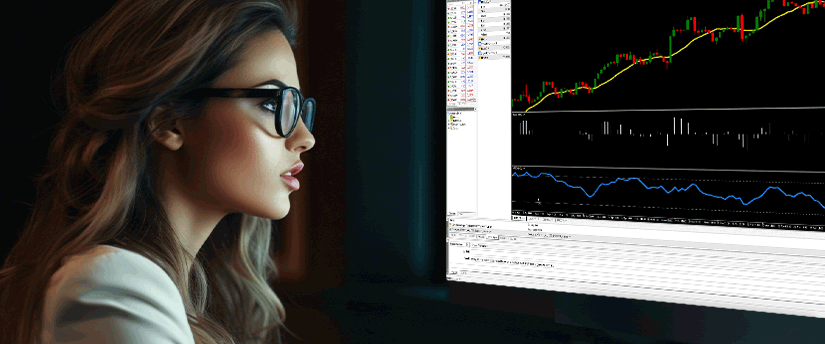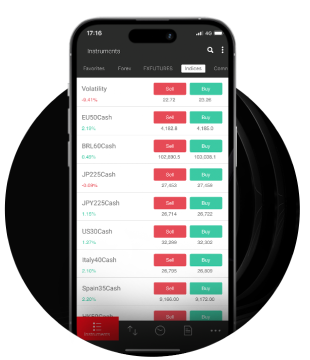Trading is about doing research and developing better strategies, but also about having the right mindset and staying calm when the market is unpredictable.The ability to control your emotions, stay focused, and adapt to changing market conditions is a key part of trading psychology and can be valuable and immensely helpful, even more than having the technical knowledge.
What is trading psychology?
트레이딩 심리 is used to describe the psychological and emotional factors that influence a trader’s decision-making. These can all contribute to impulsive decisions, and they range from greed and fear to overconfidence or frustration.
Trading psychology can drive long-term growth or lead to disaster. For instance, you might have a good strategy, but if you panic the strategy is lost.
Trading psychology is just as important as the capital invested, thus being a crucial component to achieving consistent long-term profit.
Emotions that drive trading decisions
Every day, traders experience a range of emotions, which can influence how they think and make decisions. However, the negative impacts of trading psychology outweigh the positive ones for many traders. This can appear as closing losing positions too soon when the fear of loss becomes too much or doubling down on losing positions when the fear of realising a loss turns to greed.
욕심
Everyone experiences the need to have more, and this is not unusual with traders who want to make money fast. This can lead them to overleverage their accounts and chase fast-moving markets. They might ignore using risk management techniques or avoid closing a position risking everything because they want to go after potentially bigger gains.
공포
Fear often drives traders to exit positions too early or to avoid taking risks because they fear suffering huge losses. This emotion is stronger during bear markets, which can cause traders to make irrational decisions as they rush to exit positions. Emotional selling often leads to widespread selloffs when fear quickly turns into panic.

후회
Dealing with changing financial markets can be challenging for traders. Particularly after losing a trade or missing out on a profitable opportunity, a trader may enter a trade out of regret. For instance, a trader might hesitate to buy EUR/USD during a big move in the currency pair, only to rush in late once the price has already increased. The fear of missing out (FOMO) often leads to poor timing, and prices often reverse.
Why trading psychology matters
Every decision a trader makes has the potential to affect results and a portfolio’s performance. By using fundamental and technical analysis, traders can make clearer decisions and anticipate potential market moves. However, whichever method they use, cognitive biases and heuristics can affect how traders interpret data. These psychological factors may result in poor judgement, which could lead to missed opportunities, overtrading or holding onto losing positions.
Behavioural biases
Cognitive and emotional biases are the two main types of behavioural biases in trading.
Cognitive biases are thinking errors or blind spots in subconscious mental processes. Overconfidence and anchoring biases are common examples.
Emotional biases stem from feelings, moods, perceptions, or beliefs. These include herding behaviour, loss aversion and the emotional impacts of fear and greed. Both cognitive and emotional biases can lead to irrational judgments and bad decision-making.
Overconfidence
This a cognitive bias in which you overestimate your abilities, knowledge, and skills. Overconfident traders often trade excessively, which leads to poor performance and higher transaction costs.
Additionally, studies show that these traders overestimate their forecasting abilities and the reliability of available data, leading to emotionally driven behaviour and excessive risk-taking. If the market moves against them, they may suffer large losses.

군집 행동(herd behaviour)
When traders follow the decisions and trades of the majority. When they avoid using their research and logic and blindly follow the actions of the crowd, this can lead to big mistakes or move the markets in unpredictable ways.
앵커링(anchoring)
This occurs when traders make decisions based on a random reference point. An investor may, for instance, focus on the initial purchase price and expect that it will return to that level. Because they have anchored their estimate of fair value to their original purchase price, they may end up holding onto losing investments.
자기 귀인(self-attribution)
Occurs when individuals credit their achievements to their own skills but blame failures on external factors. For instance, a trader might think that a profitable trade reflects their great decision-making. On the other hand, they might blame their poor performance on bad luck rather than poor decision-making.
Loss Aversion
It is a common psychological error that occurs when traders feel the pain of a loss more intensely than the pleasure of a gain. This can make traders hold onto losing trades for too long, hoping to avoid a loss.
How to avoid emotional trading
There’s no single way to control emotions. With the right strategies, traders can stay focused and make better decisions.
Create a solid trading plan
A definite trading plan that establishes the conditions under which one will enter and exit trades, risk tolerance, and position size can be an open road to the trading world. A plan takes emotion out of the picture because decisions are guided by reason and predetermined rules.
거래 일지 작성하기
By documenting your trades, you can examine your mistakes and observe where you are able to make adjustments. You can learn much about your trading tendencies and emotions by reviewing your journal frequently. This enables you to have a better judgment of your performance and make the necessary adjustments for better managing your emotions and choices.

Utilise stop-loss orders
Stop-loss orders must be used by traders. Without them, one exposes themselves to holding losing trades for too long and suffering from huge losses. A full understanding of trading psychology helps traders manage risk, stay disciplined, and set appropriate stop-loss levels. Proper risk management actually helps traders save their capital and increase overall profitability.
Long-term trading achievement requires strong trading character. Traders could improve their decision-making and resilience with proper methods.
Create a trading plan
A trading plan should include risk management rules, trading hours and profit targets. By following these rules and guidelines they can control their feelings and stay focused.
Cultivate daily habits
Traders can watch the news early before they start trading, adjust their risk management methods and project their limits.
데모 계정 개설
Traders can explore the markets with a demo account without risking their own money as they can use virtual funds.
Final comments
Trading performance is not just a matter of strategies or technicals, but also about controlling the mind. Fear, greed and regret can influence a trader’s decision-making and performance, making them act irrationally and putting their account at risk.
Having a clear trading plan, keeping a journal or using stop-loss orders can be a useful road map that can help traders keep in control. Having a strong trading mindset can be as useful as learning to interpret charts and market data.
면책 조항: 본 자료는 투자 권유가 아니며 정보 전달의 목적이므로 참조만 하시기 바랍니다. IronFX는 본 자료 내에서 제 3자가 이용하거나 링크를 연결한 데이터 또는 정보에 대해 책임이 없습니다.
















